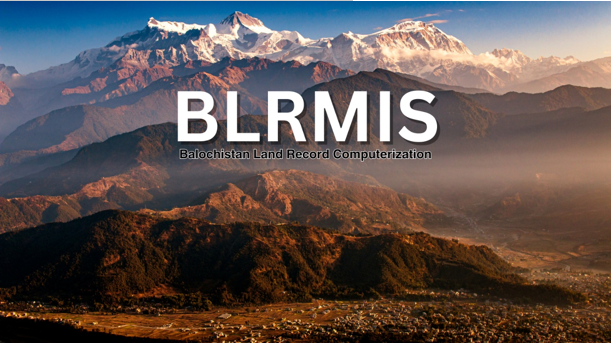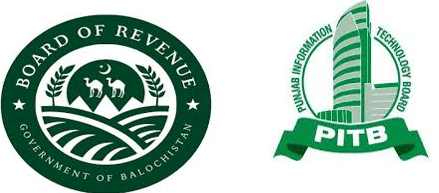آئی این پی ویلتھ پی کے
Ahmed Khan Malik
The Balochistan government is gearing up for launching the second phase of its Land Revenue Management Information System (LRMIS), a transformative initiative aimed at modernising and digitising land records across the province.

This move follows the successful completion of the first phase, which was implemented in select districts and received widespread acclaim for improving transparency, reducing land disputes, and streamlining public access to land records, officials told WealthPK.
The LRMIS project is being executed under the Board of Revenue Balochistan, with technical support from the Punjab Information Technology Board and funding from the provincial government and international development partners.

The second phase is expected to expand the system's reach to 20 more tehsils, bringing digitisation to a larger portion of the province. Syed Zulfiqar Ali Shah, Senior Member Board of Revenue Balochistan, highlighted the significance of this digital initiative. “This is a crucial step toward ensuring efficient, transparent, and citizen-friendly governance in the land revenue sector. The second phase will help us institutionalise digital records, improve service delivery, and reduce corruption in land transactions,” he stated.
“The LRMIS is designed to replace the traditional, paper-based system with a modern digital platform that allows real-time access to land ownership details, mutation processes, and legal documentation. Through this system, landowners will be able to verify their land records, apply for mutations, and access ownership certificates online or through service centres, significantly reducing delays and potential malpractice,” he said. “The second phase will prioritise tehsils where land disputes are frequent and where there is high agricultural and developmental activity.”
“New service centres equipped with trained staff and biometric verification systems will be established to facilitate the public and ensure smooth implementation,” Zulfiqar Ali said. The government has also initiated capacity-building programmes for revenue officers and patwaris to transition smoothly from manual record-keeping to digital systems. More than 300 officials have already been trained, with additional batches scheduled for the coming months, he said.
Civil society groups and local stakeholders have welcomed the initiative, calling it a much-needed reform. “For years, citizens in Balochistan have suffered due to inaccurate land records, overlapping claims, and limited access to information. The LRMIS has the potential to address these longstanding issues,” said Naz Baloch, a land rights advocate based in Quetta. In addition to improving land governance, the LRMIS is also expected to aid in planning and development, as accurate digital records will enable better resource allocation, infrastructure planning, and disaster management.
The Balochistan government has pledged to complete the second phase within 18 months, eventually expanding the system to all districts of the province. Once fully operational, Balochistan will join Punjab and Khyber Pakhtunkhwa in having province-wide digitised land records, marking a major milestone in Pakistan’s journey toward e-governance and land transparency.
Credit: INP-WealthPk












